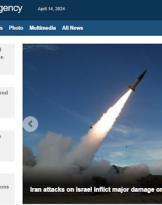We remain on an objective level: in Syria there is a government, like it or not, legitimate and internationally recognized.
The second thing in itself does not guarantee the first and it is good in this regard to make a clarification. There are many governments that get the formal "welcome" of the international community but for one issue or the other they remain in the limbo of legal legitimacy. It is often the case of new nations, born of political traumas such as splits, self-proclamations or administrative shuffling. Kosovo is the geographical example closest to us: in the face of an identity accepted by some, other subjects continue to not recognize its existence.
In the case of Syria, let's talk about something else. The legitimacy of the government of Damascus is in itself and is based on internal rules, which in turn are based on the principle of sovereignty. With this it is evident that the recognition of the Assad government falls within the sphere of the political orientations of the individual members of the international community. At least until there is a global "court of governments" that determines what is admissible in the council of nations and what is not.
From a juridical point of view, there are no institutions in the world capable of measuring the democratic contents of individual sovereign states. At most, there are the United Nations, which through resolutions can exert pressure on the basis of principles, without however having the power to enter into the internal affairs of each.
The derogation from these guidelines in the past was allowed to contain humanitarian disasters. The international community has decided to intervene in a sovereign country to stem violence deemed unacceptable in the name of human rights and common sense. The only way to implement it was to use the States able to guarantee sufficient means for this purpose. Here the donkey falls. It is precisely on this node that the interests of part are interwoven with collective interests so that it is not always possible to distinguish them.
Let's take three examples:
- in the 1992 is established UNOSOM to rescue the people of Somalia. In the 1993 mission becomes UNITAF (better known as Restore Hope), essentially a delegation to the United States to manage the humanitarian war in the Horn of Africa;
- history is repeated in the Balkans between March and June 1999 with Allied Force, with which it is NATO this time to embody the "common feeling" of world public opinion, acting unilaterally in Serbia;
- in Rwanda in 1994 the opposite happens. Despite 1 million deaths, no one sees fit to lift a finger. Genocide is not enough to force the humanitarian ambitions of the civilized world. 
If at the international level there is no clear and absolute principle that empowers someone to use force to redress someone else's internal issues, how can universal legitimacy be achieved then to armed intervention?
The question is rhetorical. The system is always the same: to influence and guide global public opinion so that an intervention is considered not only legitimate but also welcome.
What we are witnessing these days about information on the war in Syria fits exactly with this pattern. The perception that the main stream media curtain to forge the minds of the "ignorant populace" through the rebound of news of part, is nothing short of disgusting.
Concentrations of events in a matter of hours are incredibly suspicious. After the "accident" of the allied bombing against positions of the Syrian army, the counterweight carousel started.
UN Secretary-General Ban Ki Moon speaks at the Glass Palace calling Assad "criminal". Tests on the involvement of Damascus in the attack on the UN convoy on Monday, however, does not provide.
From the same pulpit speaks Obama, who at the end of a catastrophic decade, finds the consistency to point the finger at Moscow's use of force. The speech it parallels the story of the ox reminding the donkey of his wife's infidelity.
All western media highlight the two over-the-counter steps with the use of the ever-targeted glossary (regime in place of government eg…). The teletext of Italian public TV leaves them even for 36 hours on the front page and nine columns.
No one on the other hand stresses that the so-called anti ISIS Coalition operating in Syria has never been authorized by Damascus and that theObservatory of human rights, a reference source for the West, it is actually a spokesman for the rebel front. In the same hours they return to shoot on youtube video of a few years ago in which violence and abuse by Syrian loyalists are highlighted.
C'est la guerre we could say. Obviously: no one can be so naive as to ignore that countries with greater political and economic weight exert influence on others to optimize their interests. While aware of this, some objective data should not be overlooked so as not to fall into ridicule.
In Syria, as already mentioned in the head, one point must be considered incontrovertible: there is an elected and recognized government; it is up to the Syrians in accordance with the procedures laid down by their own legal system, to establish their continuity or dismissal.
In the war that tears millions of lives for six years now, there are actors legitimized by a formal investiture (the government of Damascus and the allies called to help it) and there are actors not authorized by anyone. Newspapers, TV, web and institutions by keeping silent on this fundamental point, not only omit truths, but contribute to lengthening the list of arbitrations and abuses implemented in the name of justice and freedom.
Let's be clear and let's say it away from editorial orientations and sympathies. No one in good faith can absolve the Alawite power of the Assads from certain sins and responsibilities. The ideological plagiarism implemented through the disinformation of these days, however, seems very far from any humanitarian purpose called into question.
(photo: ONU)












